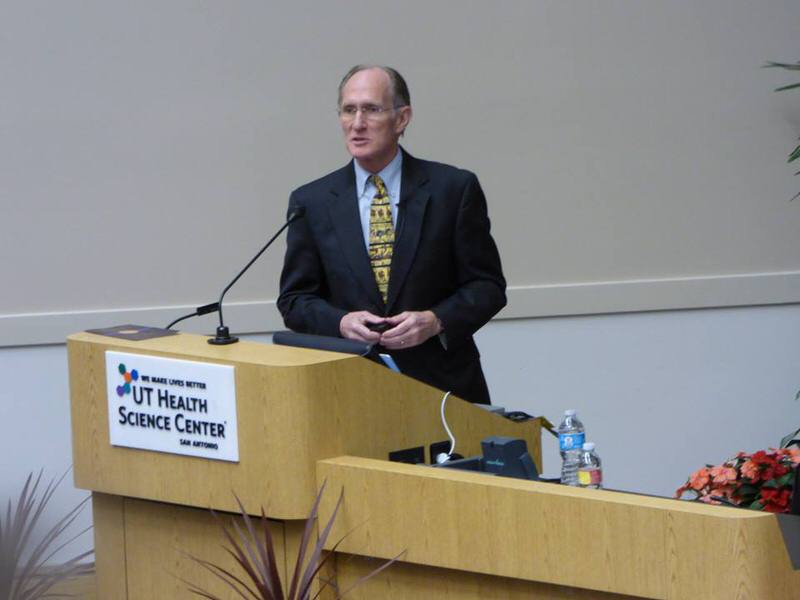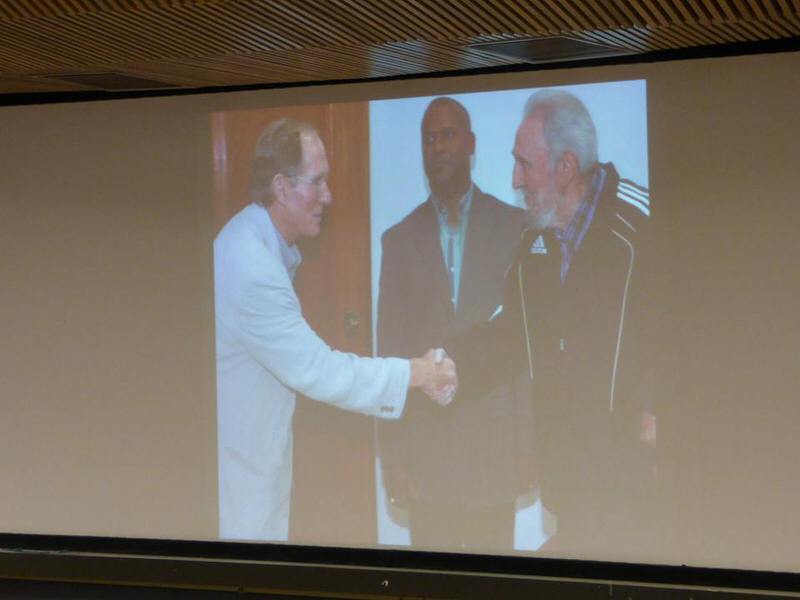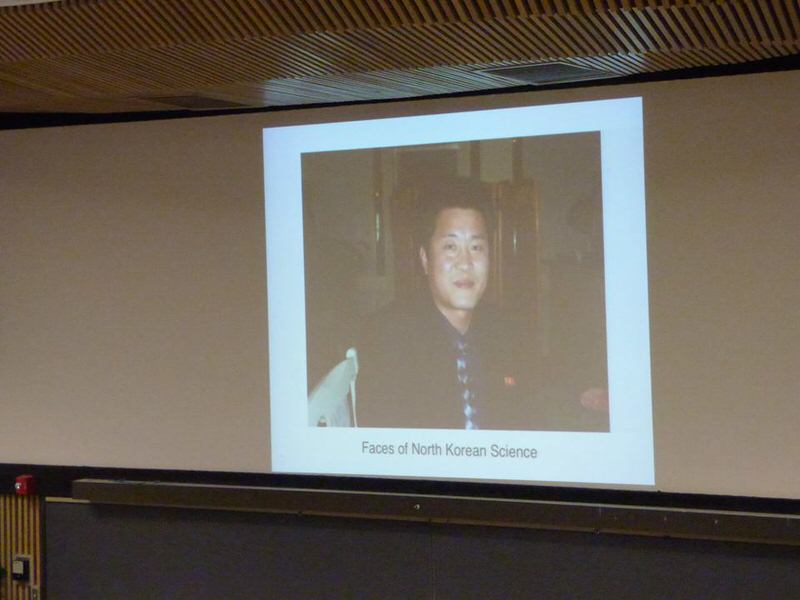Nobel Laureate Dr. Peter Agre: Young Scientists Shape the Future

Nobel Laureate and Director of the John
Hopkins Malaria Research Institute Dr. Peter Agre spoke to a jam-packed room on
Thursday at the UT Health Science Center in San Antonio about the important
role that young scientists have in shaping our future.
The lecture was part of the Presidential Distinguished Lecture, which emphasizes
the importance of research and the vital role academic research institutions play in ensuring the health and well-being of our nation and the world.
“Science is about young people and the young students I met with today are at a pivotal time in their career and embarking on a great adventure,” Dr. Agre said. “The opportunities that UTHSCSA students have are surprising and amazing.”
He advised students to be aware of the different directions that science can lead to.
“When asked about their impressions of the United States, there is only a small minority that is favorable to the U.S. but when the same individuals were asked about their impression of the United States in terms of science and technology, the impressions are highly favorable,” said Dr. Agre. “We should never underestimate the power of science to open doors.”
One of the opportunities that he spoke about was the role of science diplomacy. As president
of the American Association for the Advancement of Science, Dr. Agre led visits of U.S. scientists to North Korea, Myanmar Burma, Iran, and Cuba.
 Dr. Agre spoke about his visit to Cuba where he gave lectures to the Universidad de la Habana and also met with Fidel Castro.
Dr. Agre spoke about his visit to Cuba where he gave lectures to the Universidad de la Habana and also met with Fidel Castro.
“The interesting thing is not the things we disagreed on which there were many but
the things that we agreed on. You may be surprised to know that one of the reasons for the Cuban revolution was the need to provide healthcare for Cubans,”
Dr. Agre said.
“At the end of the evening, an aging American scientist and an aging Cuban dictator could actually agree on several things and I think there are ways that science can help here, we can all learn from each other.”

Dr. Agre also spoke about his trip to North Korea and the opportunities for volunteer teachers at Pyongyang University of Science and Technology.
“They have a scientific presence and they are eager to engage us in science. They are very careful not to talk about anything sensitive but just science. They realize that they have a small scientific enterprise but they see this as a
possible way forward,” Dr. Agre said.
Dr. Agre spoke about how much he enjoys visiting universities especially those in different countries.
“The buildings may change and the level of scientific work in the lab may change,” he said.”But the presence of young people who are passionately interested in science is still there.”
